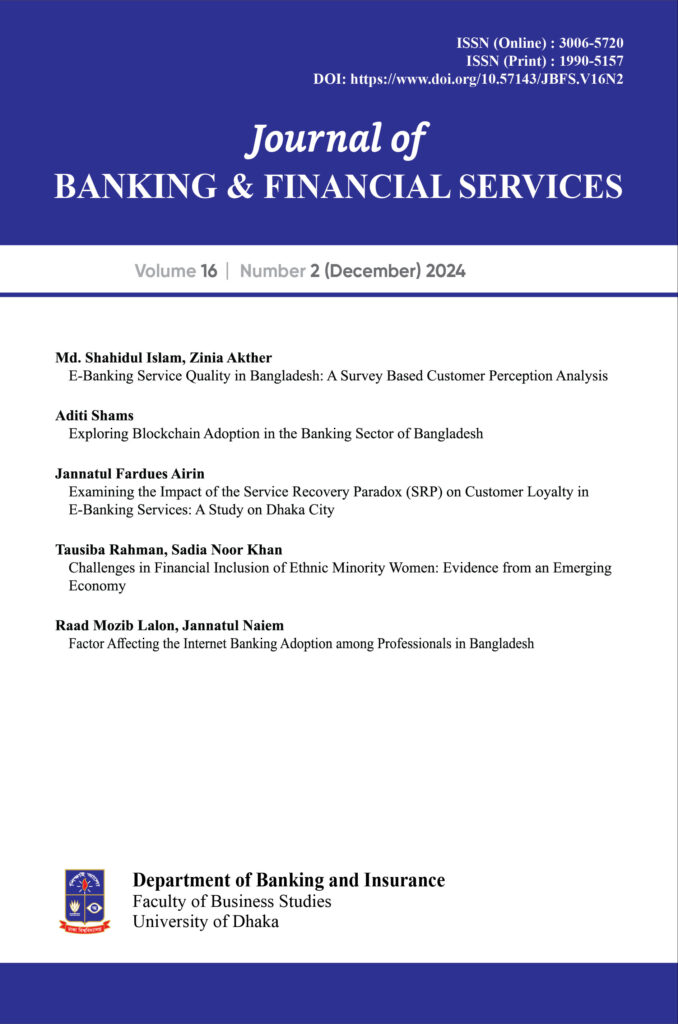
Author Details
Raad Mozib Lalon*
Professor, Department of Banking and
Insurance, University of Dhaka, Dhaka
Email: raadmozib@du.ac.bd
*Corresponding Author
Jannatul Naiem
Lecturer, Department of Finance
and Banking, Southpoint School and
College, Panchlaish, Chattogram
Email: jannatulnaiem2303@gmail.com
Article Details
JBFS Volume 16 Number 2 (December) 2024
DOI: https://www.doi.org/10.57143/JBFS.V16N2A5
JEL Classifications: C3, C35
Received: 20 December, 2024
Accepted: 02 June, 2025
Published online: 30 June, 2025
Published in Print: 30 June, 2025
ISSN (Online) 3006-5720
ISSN (Print) 1990-5157
Abstract
Abstract
This paper employs the Unified Theory of Acceptance and Use of Technology (UTAUT) model to identify the determinants influencing the adoption of Internet Banking among professionals in Bangladesh. Through an online survey involving 440 respondents from diverse demographic backgrounds, this research investigates the impact of performance expectancy, effort expectancy, social influence, facilitating conditions, attitudes, and concerns about security and privacy on Internet Banking usage. Utilizing Linear Probability, Logistic, and Probit regression analyses, the study also examines how demographic factors such as age
and gender moderate these relationships. Results indicate significant positive effects of performance expectancy and attitudes on the acceptance of Internet Banking. However, gender and age display varying moderating influences, with facilitating conditions showing unexpected mixed results and social influence exerting minimal impact. These findings offer essential insights for financial institutions and policymakers aiming to develop targeted strategies that boost
Internet Banking adoption and enhance service delivery, particularly in developing contexts like Bangladesh. The study contributes valuable empirical evidence to the broader discourse on technology acceptance in emerging economies like Bangladesh.
